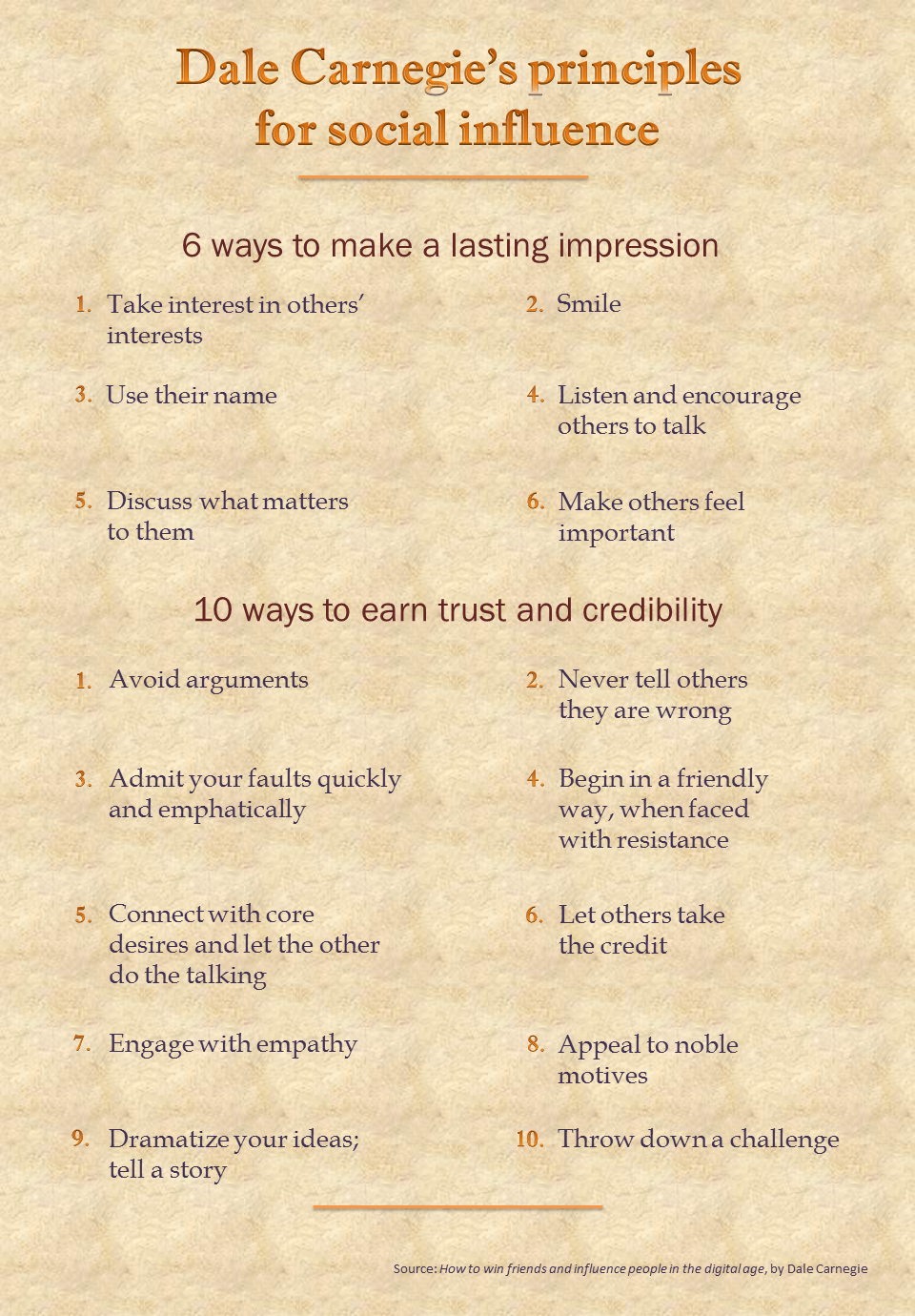By {grow} Community Member John G. Olson
I heard Guy Kawasaki speak recently about the need to enchant others to bring influence in the digital age. It reminded me of a book I read decades ago, Dale Carnegie’s classic How To Win Friends and Influence People, I paged through it again and was reminded of its timeless wisdom for garnering social influence. Written in 1936, its principles are relevant to digital communications today.
Technology has given us enormous potential for reach, immediacy and influence. It provides a permanent online record of information and interactions. With that, marketers have greater responsibility for what they publish online. A poor communication decision can have a lasting impact on personal and brand reputations, with legal, privacy and employment repercussions. A few examples:
- Facebook faux pas: In October 2010, a domestic violence advocate at the group Hispanics United of Buffalo began a Facebook thread, “Lydia Cruz, a coworker feels that we don’t help our clients enough at HUB. I about had it!” Three days later five participants in the social conversation were fired.
- Blog bloviating: In July, 2012, a millennial blogger posted a provocative article entitled “Why Every Social Media Manager Should Be Under Age 25.” It set off a firestorm of 600+ comments and scrutiny of reasoning errors in the piece, with several rebuttals pointing out the author had alienated future hiring managers.
- Errant email: A salesman at a networking company accidentally sent a file chock-full of favorite pornographic cartoons and jokes to everyone on his top customer list, which included government agencies. His subject line: ‘Special deals for my best customers!’
- Twitter twaddle: In 2011, the Kenneth Cole corporate account tweeted “Millions are in uproar in #Cairo. Rumor is they heard our new spring collection is now available online.” The tweeter was either unaware the Arab Spring had toppled the government taking several lives, or was making an ill-advised joke.
These cautionary tales illustrate how digital communications can go wrong and go viral. Social blunders like these are commonly caused by carelessness, false assumptions or unchecked emotions. They can be avoided by following Carnegie’s principles in online conversations.
Notoriety is NOT credibility
Each of these principles could be the topic of a separate blog post, but do you start to see how these truths echo in our social media maxims and best practices today?
Our media rewards the outrageous but does this does this translate to influence? Not necessarily. Digital citizens need to make a distinction between notoriety and credibility. Viral sensations like Rebecca Black and Gangnam Style memes have a short shelf life. They live on borrowed influence that gets attention and traffic, but does not earn a meaningful, long term following. They entertain, but rarely create a relationship-level connection that truly influences.
In contrast, Carnegie’s principles create a higher level of influence. The emphases on engagement essentials that affirm what is good and connect with others’ core desires inspire a following. People will be inspired to follow you:
- Because of what you’ve done for them
- Because of who you are
Mastering the essentials of influence
These principles are simple, but not always easy to apply. An entire industry has emerged that teaches emotional intelligence skills in the workplace. Learning to communicate in ways that build up, rather than tears down, takes self-discipline. But it is a skill worth learning. On the social Web, every interaction sows the seed of potential influence. That makes influence skills more than good manners. It makes them good business.
I would be interested to know — as you review these 10 principles, which seem most important on the social web today?





